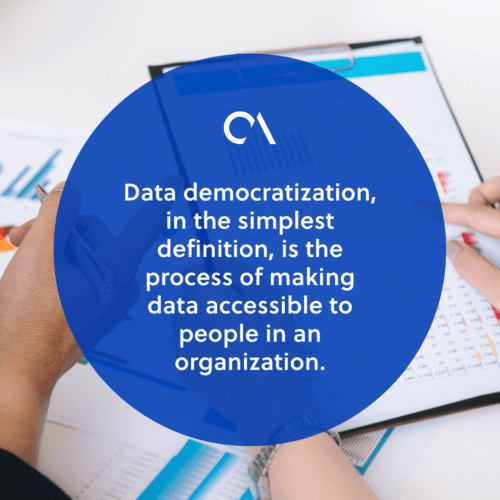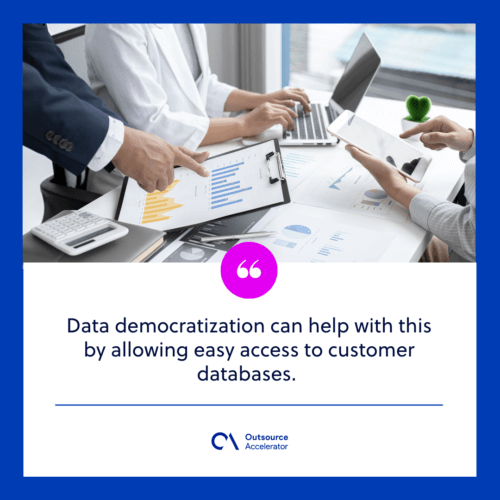5 reasons data democratization is important for your organization

Data democratization is one of the most discussed topics in recent years. And it’s not just the members of your IT department who are talking about it. Business executives across different industries have also caught on to the trend.
Many experts believe that data democratization is a game-changer in business operations.
This article explains its importance in today’s business landscape and why you must consider implementing it in your organization.
What is data democratization?
When employees need to gather data, they usually go to IT people to ask for access.
Data democratization, in the simplest definition, is the process of making data accessible to people in an organization.
This concept has been gaining attention as businesses recognize the value of data as an asset.
Data democratization is more than just giving individuals access to files. It empowers your people to work with data comfortably and confidently, regardless of their technical knowledge and skills.
Data democratization aims to enable more people in your organization to make informed decisions and provide better customer experiences.

How to implement data democratization?
Promoting data democracy entails valuing data-driven decision-making, fostering collaboration, and offering necessary tools and training.
By defining roles, creating processes, and ensuring data quality and security, companies empower employees to use customer data effectively.
Successful data democratization hinges on establishing a solid data governance foundation.
Those benefits cannot be felt or seen overnight. The results will take time.
Data democratization’s success lies in the following initiatives:
Data literacy
Prioritizing data literacy in your company allows your employees to be more comfortable with data-driven tasks. Your people must know where they can access the data they need to work.
Different departments will require different data. Hence, there are different shades of data literacy.
Your task is to identify each department’s or individual’s needs and provide them with the right tools to access and use the data they need.
By using data federation software, professionals gather data from multiple sources for insights.
Self-service analytics tools help analyze data for informed decisions.

Advanced analytics
Data democratization is more than just making data accessible. It will be much easier for your teams when the data they need is already summarized or analyzed.
This is why companies should also invest in tools for analytics.
Choose advanced tools that can extract context and provide insights from raw data.
Tools like NLP are advantageous because they are designed to help you dig deeper into the information without manually reading through the data collected.
In advanced analytics, data scientists use modern techniques to get insights from datasets for decision-making.
Team training
Training your people on how to use the tools is definitely crucial to the success of data democratization.
Everyone must be trained and empowered to achieve competence in accessing, managing, and utilizing data that they are authorized to access.
The training should also involve educating individuals on the technology, processes, and most importantly, data security and privacy practices.







 Independent
Independent




